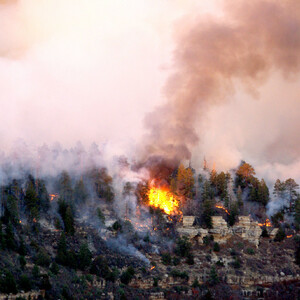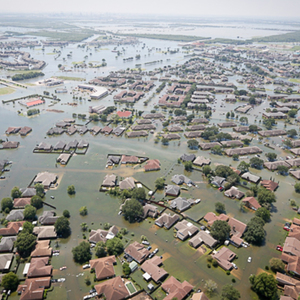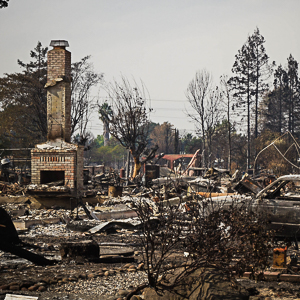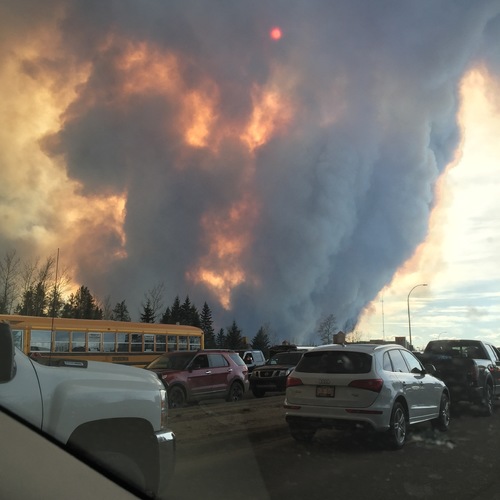
Wildfires in California are putting new demands on insurance companies and making it tougher for homeowners to buy policies in high-risk areas.
The New York Times reports that 3 million of the state’s 8 million houses are located in the wildland-urban interface, areas where towns and cities give way to more fire-prone grasslands and forests. About a third of all U.S. houses have been built on such topography.
When wildfires strike, these houses are the first to go. Even when builders and homeowners are diligent about detailing the structures against fire and keeping areas around the houses free of flammable materials, the huge scale of recent wildfires is overwhelming.
In Paradise, California, the Camp Fire has wiped out nearly 14,000 houses. At last count, 88 people were killed and hundreds remain unaccounted for. This comes on top of four major fires in California last year, which cost the insurance industry $12.6 billion.
The losses are prompting some insurers not to renew the policies of homeowners in high risk areas. And when homeowners affected by this year’s fires rebuild their homes, they may be unable to find a company that will write them a policy, or is willing to do so for an affordable rate.
In speaking with The Times, California Insurance Commissioner Dave Jones said, “We’re slowly marching toward a world that’s uninsurable.”
Jones told the Associated Press that he expected more insurance companies would not renew policies or stop writing them for houses in high-risk areas. He also said higher rates are likely, and that parts of the state would be reclassified to high-risk.
More dropped policies, higher rates
Although the state doesn’t keep a full tally of people who have been dropped by their insurers, the number of homeowners who say that’s happened to them more than tripled between 2010 and 2016, the AP said.
According to the Department of Insurance, the number of non-renewals in the riskiest fire zones increased 15% from 2015 to 2016. In those 24 high-risk counties, insurers dropped more than 10,000 policies in 2016.
Earlier this year, The Los Angeles Times cited the example of a couple in Lake Country in the northern part of the state who were dropped by their insurance company two years ago. They were able to buy a policy through Lloyd’s of London for $2,100, but by early this year the premium had grown to $5,800.
They opted for a plan that’s not regulated by the state. It came with a higher deductible and $200,000 less in personal property coverage.
For homeowners who can’t get coverage in any other way, the state’s FAIR Plan is available. It describes itself as “insurance of last resort” that should be used only after efforts to obtain insurance elsewhere have been exhausted. The association of insurance companies that offers the plan doesn’t get any public funding and is not a state agency.
FAIR Plan rates can be steep. The LA Times points to the experience of Jim Steel, a Lake County supervisor whose $1,800 Farmers policy was canceled. He eventually found insurance with the FAIR Plan, but at double the rate. He also had to buy supplemental insurance for the contents of his house, his outbuildings, and machinery.
Early this year, the state’s Department of Insurance made a number of proposals, including one that would prevent insurers from dropping homeowners who had taken steps to reduce wildfire risks around their homes. Another would have given it the authority to regulate computer models that decide how risky a particular piece of property is. Current models don’t take into account what individual homeowners and communities do to reduce the threat of wildfires.
Insurance companies have fought the changes, The Times said. They argue that they can’t consider changes of those kinds like until premiums reflect the actual cost of insuring high-risk buildings, and that hasn’t happened yet.
Weekly Newsletter
Get building science and energy efficiency advice, plus special offers, in your inbox.















3 Comments
So will the town of Paradise NOT rebuild and the people will just abandon it and leave it?
Peter,
As you might imagine, each Paradise family is making their own decision. I've heard radio interviews with Paradise families who have decided to relocate, and I've heard radio interviews with Paradise families who want to rebuild.
Everyone is free to interpret the facts on climate change as they please. However the insurance companies will have the last word on whether someone can get insurance at a reasonable price. Without property insurance there are no mortgages.
Log in or create an account to post a comment.
Sign up Log in